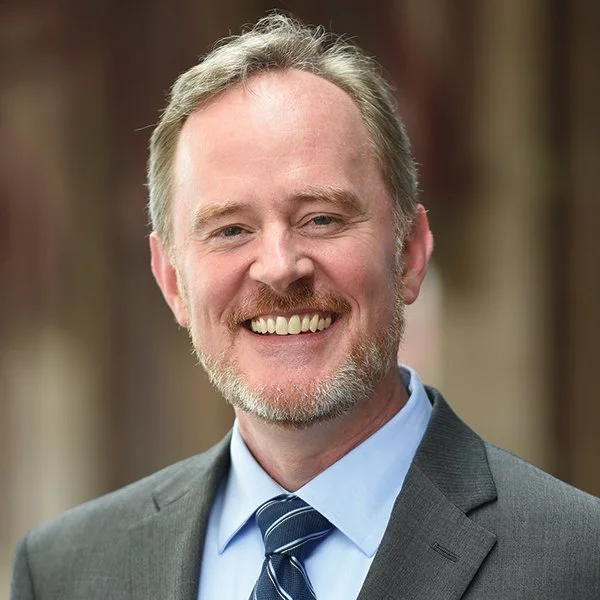Values-driven work
When I began at the helm of the ACLU of Iowa in the spring of 2017, the organization was receiving the generosity of many new donors who were looking to us to fight back as rights and liberties were being threatened. We didn’t know if those supporters would stay with us long-term or if they were donating the way many give to disaster relief — one gift and done. But we knew that our mission demanded that we invest the resources we had been given in the work that was before us. Through discussions with our team, it was clear that our biggest challenges to meeting our mission in these uncertain times were bandwidth-related. Our staff at the time simply did not have enough hours in the day to do all the things that needed to be done.
Over the next few years, we added positions in all areas of the organization, nearly doubling the size of our team from when I started. This added staffing enabled us to do more and to be more, but it also has required additional time spent in developing our management and supervision skills. We had to be willing to grow from our occasional mistakes and keep lines of communication open with the team. We had to improve our HR practices and policies to ensure that we are being as equitable as possible in all ways. And we had to keep raising money to fund it all.
Meanwhile, the board of directors had to relinquish the hands-on program work that many had been accustomed to when our organization was more lean and dependent on volunteers. Now our board is primarily focused on strategic collaboration and higher-level oversight with me, the executive director, rather than holding down the day-to-day decision-making and operations work. We also transitioned to formal term limits for volunteer board service, to ensure that our governing body has a steady stream of new and diverse backgrounds and perspectives from which to draw in determining with me the organization’s strategic priorities.
Looking back at these five years and the changes we have navigated, there are some recurring themes that have guided our decisions and helped keep many of these newer donors committed to our organization.
Don’t save money for a rainy day when it’s pouring outside. New donors don’t come to us to build up our financial reserves. They come hoping we will do all that we can to meet the many challenges of the moment. We are fiscally responsible as an organization, but we refuse to be too conservative with the resources our supporters invest in our work, especially with our efforts so needed right now.
Our team is our most precious resource. We have chosen to invest in our staff even as we have grown, providing better than market-rate salaries and benefits to all team members to ensure that we can retain as long as possible the talent that is the heart and brains of all that we do. We will never be able to pay our team exactly what they are worth. What nonprofit can? But we know that taking care of the team matters, especially when so much of our work can be personally impactful and therefore emotionally taxing.
Donors invest in good plans, good work and success. When our team meets with supporters, we elevate the approaches we are taking to win the fights that matter over the long term, not just today. We can’t discuss legal strategies, but we do talk about why cases are important and how investments in our efforts can lead to positive change. We ask donors to consider significant investments in growing our team, and therefore our work, because we always want to be able to be present when we are most needed. And we quickly share news of our victories with our supporters because we couldn’t win without them and they deserve to celebrate with us.
Live the mission fully. The ACLU of Iowa legacy is that we are principled, effective and reliable in service to our mission of defending and advancing rights and liberties. Every decision that we make comes back to how best to live that legacy and show up where and when we can with integrity, honesty and expertise. These are harrowing times. Shameless manipulation of the truth is common, divisive partisanship keeps even the most well-intentioned people from seeing clearly, and our neighbors and family members are too often thrown under the proverbial bus for political gain. In the midst of these difficulties, maintaining our credibility as a nonpartisan, truth-telling, rights-for-all organization is both our goal and our reward.
Even early on in my tenure, people would ask me if I regretted choosing to work at the ACLU with so many challenges before us and so much at stake. My answer has come easily. There is nowhere else I’d rather be than with the talented and strategic team with whom I have the privilege to work, in relationship with the generous supporters who make this work possible, and in service to the greatest and most humbling mission I could imagine — preserving and advancing the basic freedoms and equality of my fellow Iowans and Americans.
Why is philanthropy important to our community?
Philanthropic engagement with organizations doing values-driven work in our community helps us develop connections to our neighbors. Through these connections, we grow our understanding of ourselves as capable of making positive differences in the lives of others and on behalf of what is just and fair. Everyone benefits when we act on this understanding. As theologian Howard Thurman eloquently said, “Don’t ask yourself what the world needs. Ask yourself what makes you come alive, and go do that, because what the world needs is people who have come alive.” Philanthropy helps us and our community become more alive.

